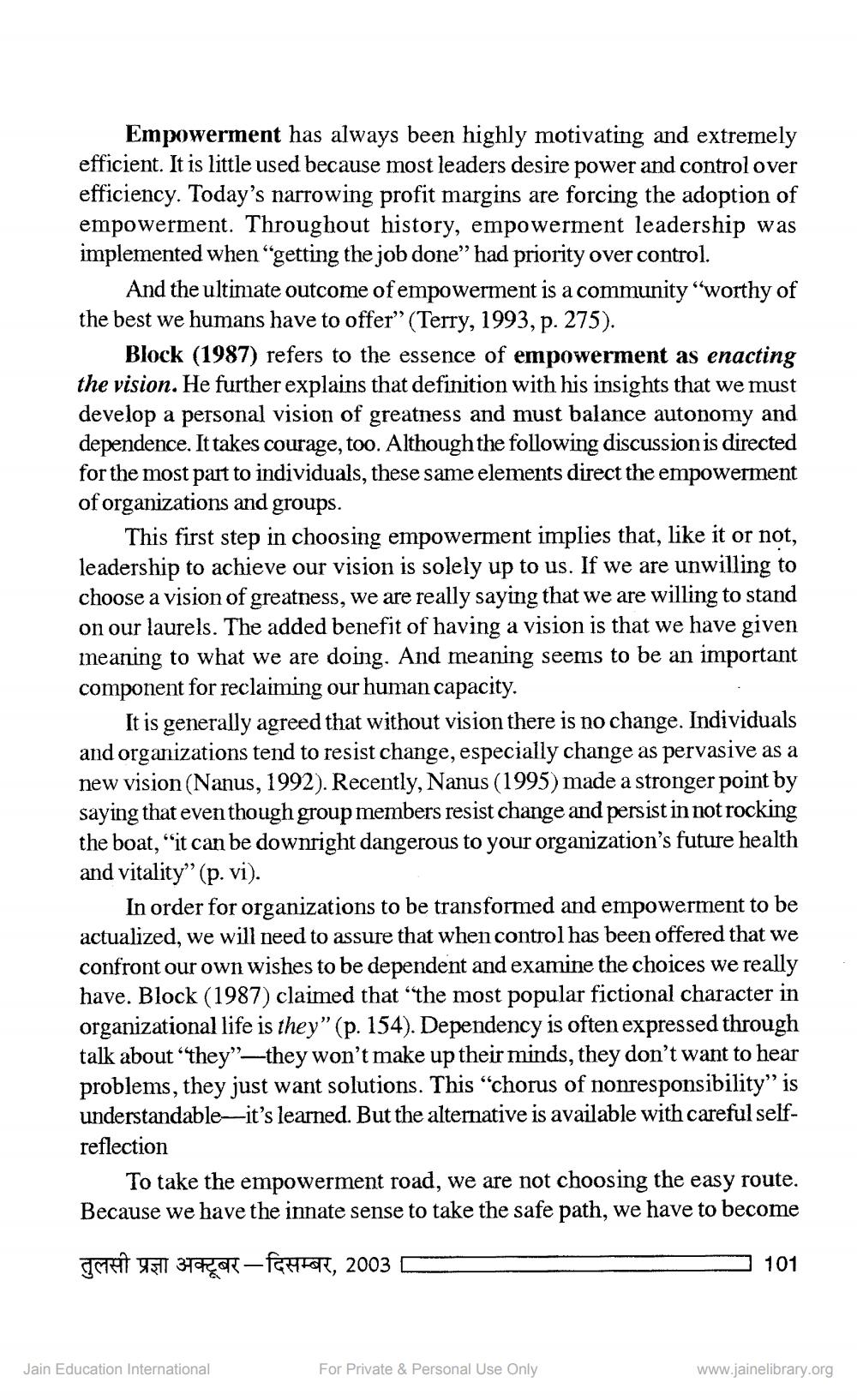________________ Empowerment has always been highly motivating and extremely efficient. It is little used because most leaders desire power and control over efficiency. Today's narrowing profit margins are forcing the adoption of empowerment. Throughout history, empowerment leadership was implemented when "getting the job done" had priority over control. And the ultimate outcome of empowerment is a community "worthy of the best we humans have to offer" (Terry, 1993, p. 275). Block (1987) refers to the essence of empowerment as enacting the vision. He further explains that definition with his insights that we must develop a personal vision of greatness and must balance autonomy and dependence. It takes courage, too. Although the following discussion is directed for the most part to individuals, these same elements direct the empowerment of organizations and groups. This first step in choosing empowerment implies that, like it or not, leadership to achieve our vision is solely up to us. If we are unwilling to choose a vision of greatness, we are really saying that we are willing to stand on our laurels. The added benefit of having a vision is that we have given meaning to what we are doing. And meaning seems to be an important component for reclaiming our human capacity. It is generally agreed that without vision there is no change. Individuals and organizations tend to resist change, especially change as pervasive as a new vision (Nanus, 1992). Recently, Nanus (1995) made a stronger point by saying that even though group members resist change and persist in not rocking the boat, "it can be downright dangerous to your organization's future health and vitality" (p. vi). In order for organizations to be transformed and empowerment to be actualized, we will need to assure that when control has been offered that we confront our own wishes to be dependent and examine the choices we really have. Block (1987) claimed that "the most popular fictional character in organizational life is they" (p. 154). Dependency is often expressed through talk about "they"--they won't make up their minds, they don't want to hear problems, they just want solutions. This "chorus of nonresponsibility" is understandable--it's learned. But the alternative is available with careful selfreflection To take the empowerment road, we are not choosing the easy route. Because we have the innate sense to take the safe path, we have to become Toen 4511 37RCR-, 2003 101 Jain Education International For Private & Personal Use Only www.jainelibrary.org




